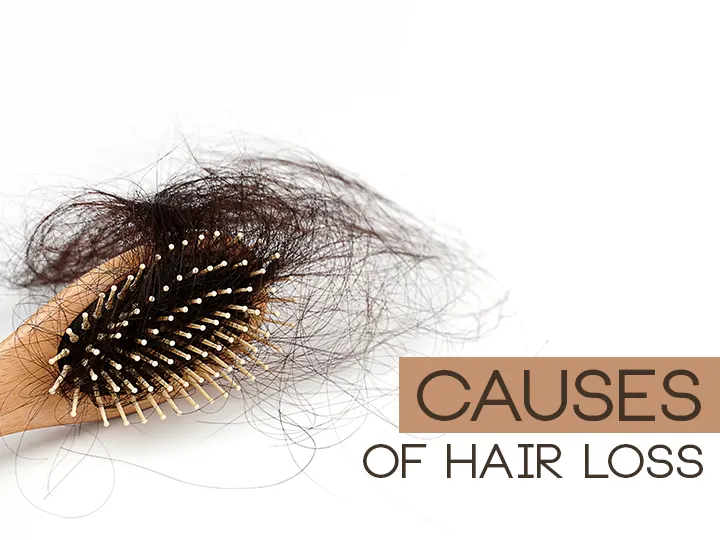
Hair loss, also known as alopecia, can be a distressing condition that affects both men and women. While there are many potential causes of hair loss, some of the most common include genetics, hormonal imbalances, medical conditions, and certain medications.
One of the most common causes of hair loss is genetics. Male pattern baldness, for example, is caused by a genetic sensitivity to a hormone called dihydrotestosterone (DHT). DHT causes the hair follicles to shrink, leading to thinner, shorter hair and eventually hair loss. Women can also be affected by genetic hair loss, which is caused by a combination of genetic, hormonal and environmental factors.
Hormonal imbalances can also cause hair loss. For example, an overproduction of the hormone testosterone can lead to hair loss in women. Similarly, an underproduction of thyroid hormones can cause hair loss in both men and women.
Certain medical conditions, such as autoimmune disorders, can also cause hair loss. Alopecia areata, for example, is an autoimmune disorder that causes hair loss in patches on the scalp. Iron deficiency anemia and Vitamin D deficiency can also cause hair loss.
Medications, such as blood thinners, antidepressants, and blood pressure medications, can also cause hair loss. Cancer treatments, such as chemotherapy and radiation therapy, can also cause hair loss.
Other causes of hair loss can include stress, poor nutrition, and hairstyles that put stress on the hair, such as tight braids and ponytails.
Hair loss can be a difficult and emotional experience, but it is important to remember that it is a common condition that can be caused by a variety of factors. If you are experiencing hair loss, it is important to speak with your healthcare provider to determine the cause and the best course of treatment. The earlier the diagnosis the better the chance to prevent hair loss or regrow hair. Options include medication, topical treatments, lifestyle changes, and hair restoration surgery.